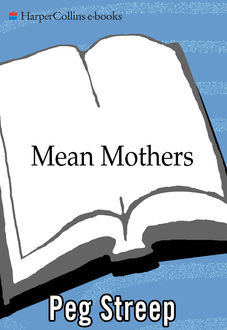
en
Čitajte pomoću naših aplikacija:
iOS
·Android
Mean Mothers
- marthaje citiralaпре 5 годинаAs Western fairy tales make clear, cruel or uncaring mothers are never biological mothers but interlopers or stepmothers instead. “Real” mothers neither hate nor envy; it’s Rapunzel’s jealous stepmother who locks her in the tower, just as Cinderella’s rapacious one would consign her to a life of servitude.
- forgetenotje citiralaпре 6 годинаWriting about her own mother, feminist writer Phyllis Chesler suggests that an envious mother diminishes her daughter to save herself from feeling diminished: “Once, long ago, I must have been my mother’s little girl, someone she dressed, whose hair she braided—but then she left me, and I left her, and we kept leaving each other. No matter what I did to try to gain her love or approval, it was never enough, because all she wanted was me for herself, me, merged, me as her shadow, me, devoured. She loved me, but in this primitive way. I failed this love.” Chesler recounts that her mother simply wanted her to be more like her—to make the choices she had, as a woman who had always put her family, not herself, first.
- forgetenotje citiralaпре 6 годинаThe crisis finally culminated with Lisa’s nervous breakdown in the tenth grade. For Lisa, it was a life-changing event: “I checked out of childhood and, in a real sense, out of the family. My mother’s response to what I’d done was all self-referential; she kept saying, ‘What did I do wrong to deserve this?’
- forgetenotje citiralaпре 6 годинаPut another way: “Seeing your mother’s evident affection for your sibling may override any amount of affection you in fact receive.” Those siblings who perceived differential treatment were less confident and had lower self-esteem. What this means to the stories daughters tell is this: it may not simply be about how their mothers treated them but about how they treated them differently from their siblings.
- forgetenotje citiralaпре 6 годинаOur cultural myths about family tend to emphasize connection and similarity rather than differences, as anyone who’s ever visited a new mother in the hospital or at home can attest to. We lean over the crib to identify not how the newborn is unique or different but how she reflects the familiar: “She has your eyes,” says one smiling visitor, turning to the mother, “and your nose,” to the father. Like the myth of unconditional love, our myths about family speak to our human need for connection, continuity, and sense of belonging. We look to heredity to explain the similarities between us and our firstborn children and, later, the similarities between siblings.
- forgetenotje citiralaпре 6 годинаWhile each baby is born with all she or he needs—the basic hardware and wiring—to learn about love and connection, a baby cannot use it or begin to sense and incorporate the emotional world without a consistent guide. Seen from this point of view, the small gestures of mothering have unexpectedly great import and the absence of consistent, attuned mothering even greater impact. Looking into a baby’s eyes and having her look back, touching and stroking her, cooing and gurgling back and forth are not just gestures of maternal affection but a key part of what is actually a “life-shaping process,” the jump start the limbic system of the brain needs to learn about love. As Thomas Lewis and his colleagues write, “If a parent can sense her child well—if she can tune into his wordless inner states and know what he feels—then he too will become skilled in reading the emotional world.” Conversely, with a parent incapable of tuning into or resonating with her infant, the result is very different.
- forgetenotje citiralaпре 6 годинаI couldn’t express anything challenging to her without feeling responsible for her happiness
- forgetenotje citiralaпре 6 годинаI was there for her but, in a deep energetic sense, she wasn’t there for me
- forgetenotje citiralaпре 6 годинаOn the surface and to the outside world, Eleanor’s mother seemed to be everything a mother should be—a hardworking woman with a high-achieving daughter and a nicely maintained home, a good and thoughtful neighbor, a person guided by her strong sense of faith and active in her church. All of this served to isolate Eleanor even more: “I was alone in trying to understand my sadness as a child. You see, no one knew—not even my father. When I became an adolescent, she remained indifferent on some level but intruded into my life on another. When she felt needy, she would try to use me to make herself feel loved. She would want to hug me, and I would get angry because I felt she wasn’t responding to me but to her own need to feel loved.”
- forgetenotje citiralaпре 6 годинаHer mother, though, was another story: “Growing up, my mother was indifferent to my emotional needs and sometimes even to my physical needs. She literally didn’t listen to me or hear me. If I told her I wasn’t hungry, she’d just put food out anyway, as if I hadn’t said anything at all. I remember feeling, even as a young child, that it was almost as if I weren’t there. When we were home alone together, she never spoke to me, unless it was something functional like ‘Are you ready to go to your dance lesson?’ The only question she asked me when I got home from school each day was ‘What did you have for lunch?’—never anything about me personally. The predominant feeling between us was emptiness, which made me feel that I didn’t really matter or, worse, that I didn’t really exist.” Eleanor pauses and then adds, “As a child, her indifference made me feel unlovable. At the same time, I still tried to please her through my achievements. I assumed I had to be responsible for her treatment of me.”
fb2epub
Prevucite i otpustite datoteke
(ne više od 5 odjednom)

